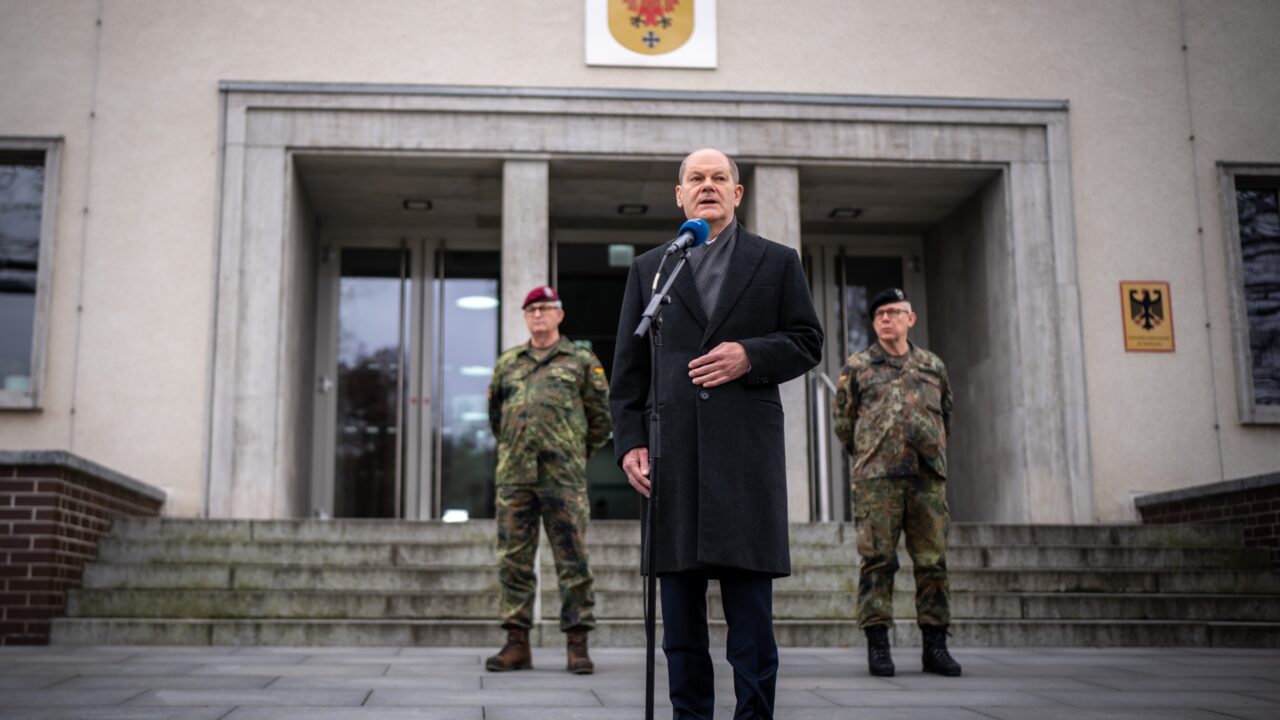How Germany can sustain its policy revolution
The revolution in defence funding and energy policy that Germany recently announced should be accompanied by an intellectual awakening
Russian President Vladimir Putin’s war on Ukraine has brought about profound changes in German policy. Addressing the Bundestag on 27 February, Chancellor Olaf Scholz recognised that, “with the attack on Ukraine, we have entered a new era”. Foreign Minister Annalena Baerbock remarked: “maybe the time has come for Germany to abandon its special and exceptional restraint in foreign and security policy.” Lauding Ukrainians’ bravery amid an unjustifiable assault on their freedom and sovereignty, Finance Minister Christian Lindner paved the way for an unprecedented increase in Germany’s defensive capabilities and resilience.
The country’s coalition government – comprising Scholz’s Social Democratic Party (SDP), Baerbock’s Greens, and Lindner’s Free Democratic Party – is united. And even Friedrich Merz, leader of the Christian Democratic Union (CDU), promised his full support.
Germany’s 2022 budget, which will be discussed in the Bundestag in the coming weeks, will add approximately €17 billion to its defence expenditure this year – to finally make good on its 2014 promise to spend 2 per cent of GDP on defence. The money will come from a €100 billion special fund for strategic investments to increase the readiness, capacity, and capabilities of Germany’s armed forces. Scholz also reaffirmed Germany’s commitment to nuclear deterrence and its participation in NATO’s nuclear-sharing arrangement, raising the prospect that the American-made F-35 stealth fighter could replace the Luftwaffe’s ageing Tornado. He also spoke of the importance of Franco-German defence-industrial cooperation to equip Europeans with appropriate means to defend themselves – if necessary, with force.
These investments are critical first and foremost to fill capability gaps that have grown since the end of the cold war. Last week, Germany’s chief of the army confessed that the Bundeswehr had reached its limit with the additional deployments that the government announced to reassure eastern allies in response to the Russian attack. Defence Minister Christine Lambrecht, a member of the SPD, noted with concern during a visit to Bundeswehr troops in Lithuania that some of them lacked weather-appropriate personal equipment. For people who follow German defence policy, none of this is new. But the new salience of these problems has provided the political impetus to make the necessary changes.
These investments are critical first and foremost to fill capability gaps that have grown since the end of the cold war
However, the revolution in defence funding Scholz announced should be accompanied by an intellectual awakening. The substantial annual defence budget increases Germany has seen since 2014, when Russia annexed Crimea, have produced anything but stellar results. So, long-time critics of the 2 per cent spending goal are right to point out that money alone cannot solve Germany’s problems. In addition to spending more to fill critical capability gaps in its armed forces, the country needs to rationalise its defence-industrial ecosystem and procurement processes. Never-ending legal battles between procurement agencies and industry harm military readiness. All Germans – including not just soldiers, officials in the defence ministry, and security and defence policymakers in the Bundestag but also other voters – need to have an honest debate about the purpose of military force. They need to deal with the reality that killing enemy soldiers and destroying military systems and infrastructure to defeat an act of aggression can be an important part of an effective foreign policy.
Before the invasion, CDU and SPD leaders defended Nord Stream 2 against any criticism – Baerbock was ridiculed during last year’s election campaign for suggesting that the gas pipeline created geopolitical vulnerabilities. Now, Nord Stream 2 is dead in the water. And Robert Habeck – vice-chancellor and minister for economic affairs and climate action – is tasked with diversifying Germany’s energy supply to reduce its dependence on fossil-fuel imports. To achieve this, he may need to break a long-standing taboo: letting Germany’s remaining three nuclear power plants run a little longer to allow for an accelerated transition towards renewables to take hold.
These changes suggest that a new, European Ostpolitik will emerge from Berlin, one that does not privilege a “special” relationship with Russia over the interests and concerns of other central and eastern European countries in the EU, NATO, and beyond. Yet sustaining the momentum of these shifts will require leadership at all levels. Statements such as those recently made by the CDU minister president of Saxony – “we will only live in peace when we live in peace together with Russia” – suggest there is still some way to go before Germans fully understand that, for some time to come, peace in Europe will require defence against Russia.
The European Council on Foreign Relations does not take collective positions. ECFR publications only represent the views of their individual authors.



